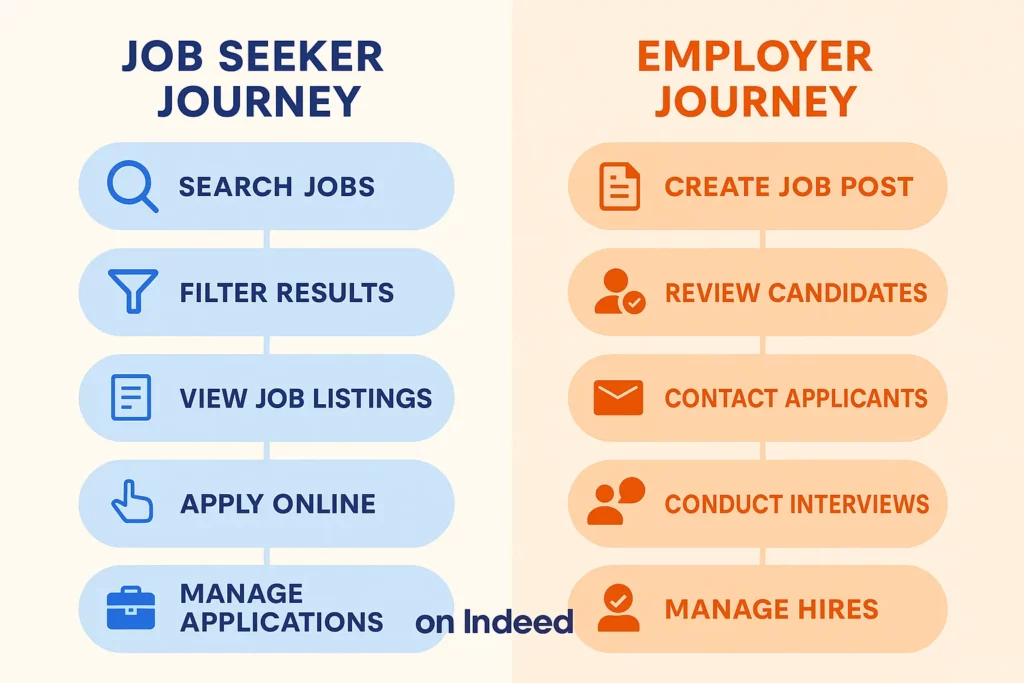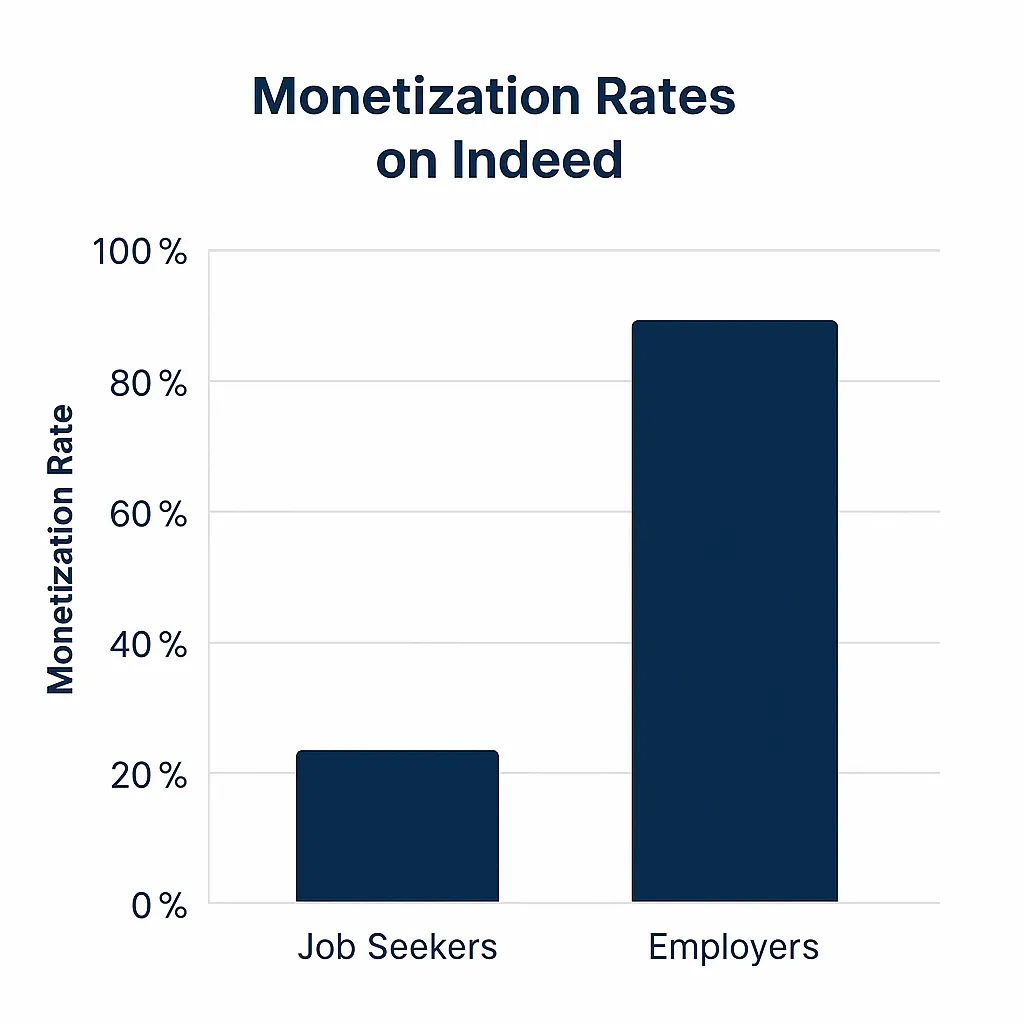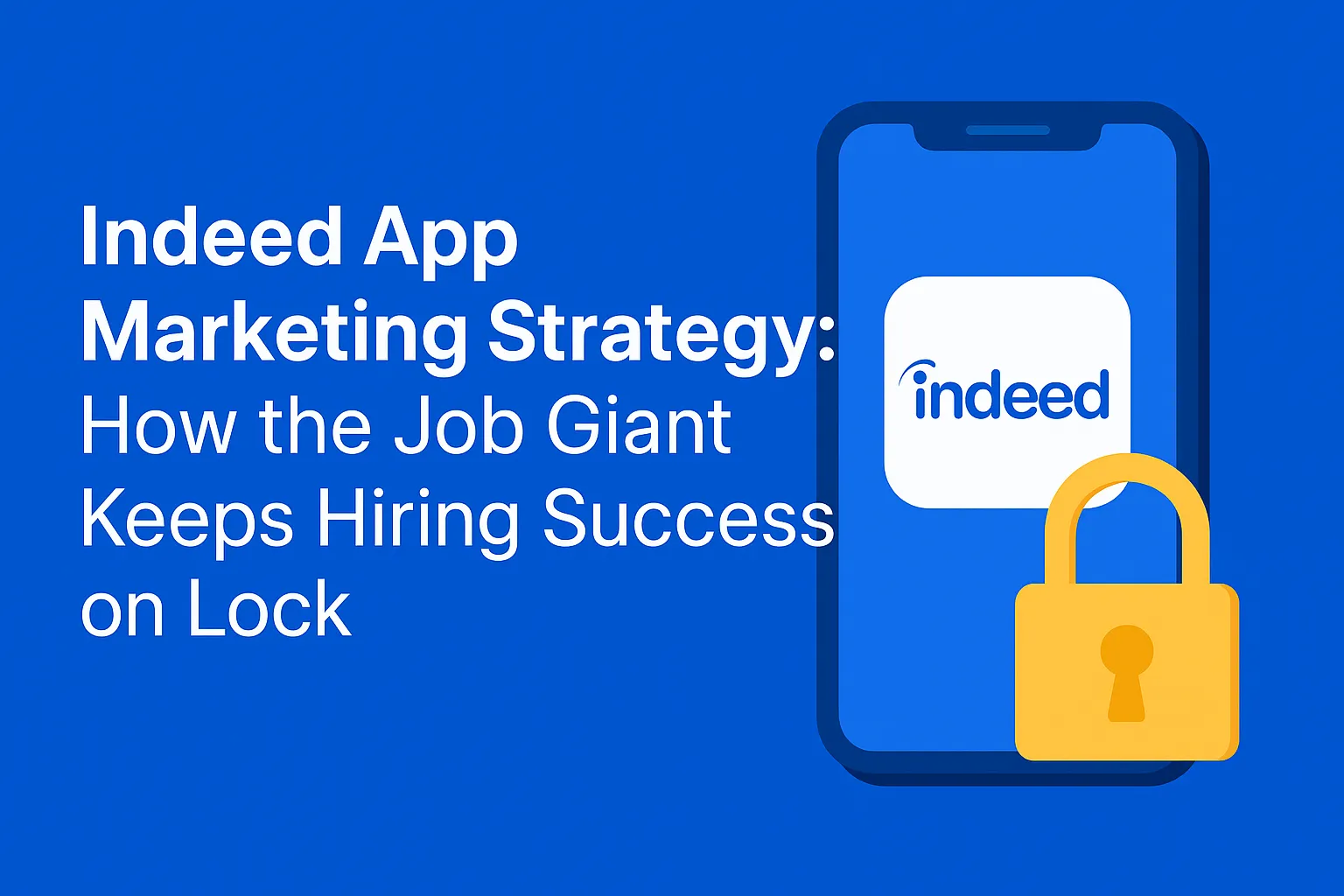We’ve all been there — scrolling endlessly through job apps, hoping to find “the one.” For job seekers, it’s emotional. For employers, it’s critical. And for entrepreneurs looking to build an Indeed clone, it’s one heck of an opportunity.
So how did Indeed — a relatively quiet contender back in 2004 — go on to dominate job boards globally, beating out behemoths like LinkedIn, Monster, and Glassdoor in the process? The secret sauce isn’t just listings. It’s a razor-sharp marketing strategy that speaks to both sides of the marketplace — job seekers and employers — while making sure the platform stays addictive, trustworthy, and indispensable.
This blog dives deep into the tactics Indeed used (and still uses) to grab attention, keep users coming back, and rake in billions. Whether you’re launching a job search platform, building your own Indeed alternative, or just a curious marketer, these insights are gold. And hey, if you’re thinking about building something similar, Miracuves has the tech muscle to help make it happen.

The Dual-Sided Game: Marketing to Job Seekers and Employers
Why It’s Tricky (and Powerful)
Most platforms only need to please one crowd. Not Indeed. Their entire marketing strategy hinges on a delicate balance between supply (job listings) and demand (applicants). And both audiences have different pain points:
- Job Seekers: Want fast, relevant results without spam.
- Employers: Want qualified candidates without paying a fortune.
Indeed markets differently to each — and you should too if you’re building your own job app.
SEO: The Long Game That Paid Off Big
Indeed didn’t build its empire on ads alone. Nope — their biggest growth hack? Search Engine Optimization.
Here’s how they nailed it:
- Millions of Indexed Pages: Every job post becomes a landing page, complete with location, keywords, and company details.
- Localized SEO: “Jobs near me,” “Remote developer jobs,” and “Part-time gigs in Chicago” — Indeed ranks for it all.
- Employer Content: SEO-optimized company profiles and reviews drive inbound interest from both candidates and hiring teams.
This approach snowballed into one of the largest organic traffic machines in the job board universe.
Stat Source: According to SimilarWeb (2024), over 60% of Indeed’s traffic comes from organic search.
Learn More: Explore the Indeed App: Job Search in Your Pocket
Performance Marketing: The Strategic Spend
While SEO wins the marathon, Indeed also sprints with PPC (pay-per-click) ads.
How they do it smart:
- Google Search Ads: Targeted by job type, location, and urgency.
- Social Retargeting: Facebook and Instagram ads for job seekers who abandoned applications mid-way.
- Employer Acquisition: LinkedIn and Google Display ads targeted at HR managers and startup founders.
It’s not about spending more. It’s about spending smarter, based on conversion data and job category performance.
Content Marketing: More Than Just Job Posts
Indeed’s blog is a masterclass in audience segmentation and keyword strategy.
- For job seekers: Resume tips, interview dos and don’ts, salary insights.
- For employers: Hiring guides, onboarding templates, labor law updates.
Every piece of content drives inbound traffic — and many pieces rank on Google’s first page.
Statista Report on Content Marketing ROI in Recruitment
UX & Mobile Optimization: Smooth Moves Matter
Marketing gets the click. But UX keeps users around. Indeed’s mobile-first approach is legendary:
- One-tap apply
- Smart filters (salary, job type, location, etc.)
- Instant notifications on saved searches
- Easy resume uploads from Google Drive or Dropbox
For startups building an Indeed clone, this is critical. A great mobile experience = lower churn + higher engagement.
Reviews, Social Proof & Employer Branding Features
Indeed encourages users to leave company reviews — and employers to claim their pages. It’s genius.
- Increased transparency for seekers
- Free exposure for companies
- More indexed pages for Google
This strategy indirectly creates user-generated content at scale, building trust with minimal cost.
Learn More: Must-Have Features in an Indeed-Style Job Platform
Leveraging Job Aggregation & Partnerships
Another underrated tactic: job scraping and aggregating listings from company websites and other boards. This made Indeed look like it had the “most jobs” — a powerful trust signal.
They also forged partnerships with staffing firms, educational institutes, and resume builders to create a job-seeking ecosystem.
Emerging Trends: What Startups Should Learn from Indeed
- AI-powered job matching: Contextual recommendations based on behavior and profile.
- Remote work boom: Prioritized during and post-pandemic; custom filters were added fast.
- Micro certifications: Employers now weigh skills more than degrees; Indeed’s content pivoted accordingly.
- Voice search optimization: A growing frontier with Google Assistant and Alexa job searches.
Thinking of building your own Indeed alternative? These aren’t just features — they’re must-haves.
Building Your Own Job Search App with Miracuves

Conclusion
Indeed didn’t reinvent the wheel — they simply made it easier to roll. From precision-targeted SEO to smart content marketing, mobile-first UX to strategic ad spend, every move is optimized for one thing: conversion at scale.
At Miracuves, we help innovators launch high-performance app clones that are fast, scalable, and monetization-ready. Ready to turn your idea into reality? Let’s build together.
FAQs
What makes Indeed different from other job apps?
Indeed’s strength lies in its SEO-first approach, minimalistic UX, and dual-sided marketing strategy that targets both seekers and employers effectively
How does Indeed attract so many job listings?
They aggregate jobs from company websites, job boards, and staffing firms, in addition to employer-submitted posts — giving them the widest job pool.
Is it expensive to run Indeed-like ads?
Not necessarily. With smart keyword targeting and audience segmentation, even startups can run effective recruitment ads on Google and Facebook.
Can I build an Indeed alternative focused on remote work?
Absolutely. In fact, niche-focused platforms often grow faster if they cater to specific segments like remote jobs, tech roles, or freelancing.
What’s the best way to compete with Indeed?
Don’t go head-to-head. Instead, focus on underserved markets, unique job niches, or regions where Indeed doesn’t have a strong presence yet.
Does Miracuves offer an Indeed clone?
Yes! We specialize in building job board apps with customizable features, mobile-first designs, and integrated admin dashboards — ideal for startups.








